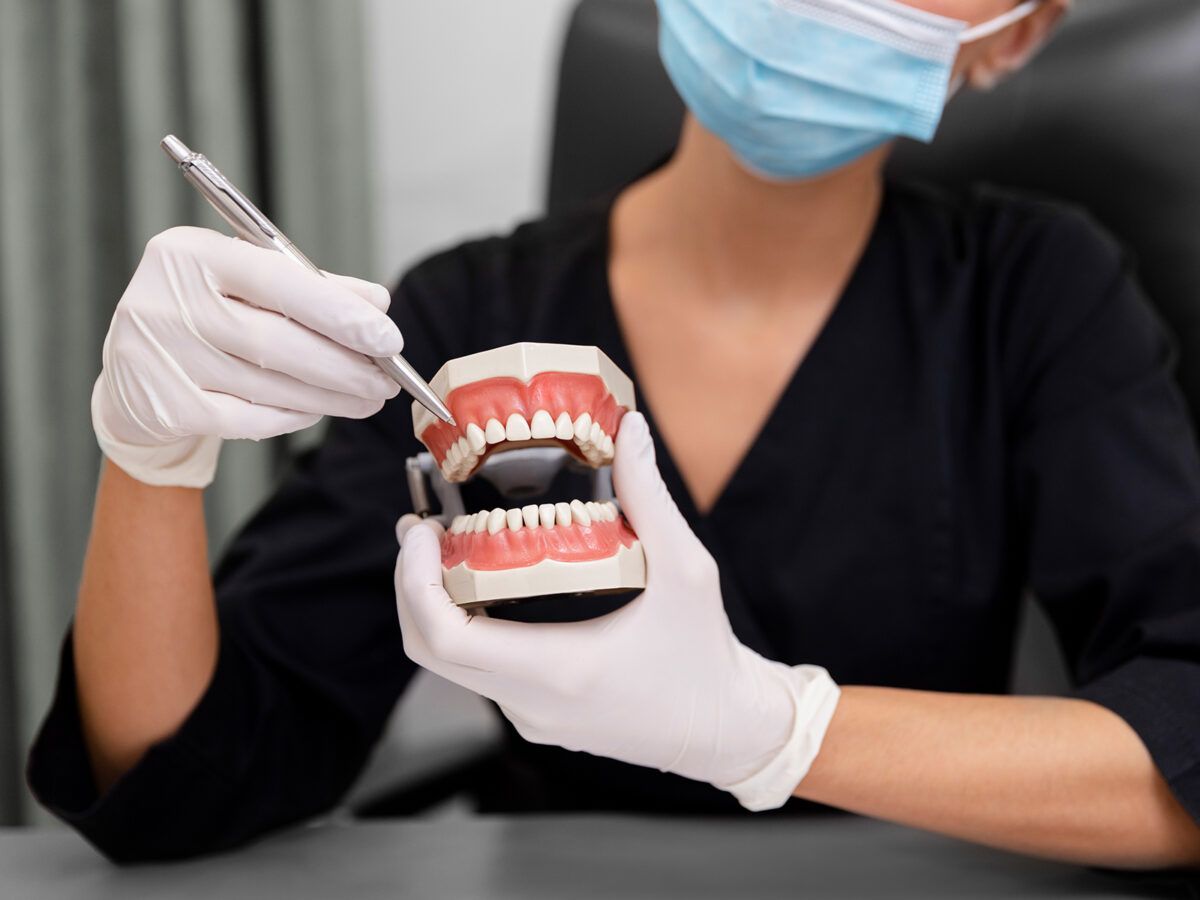River Walk Dental Orthodontics
Blog
Dental hygiene tips for healthy teeth & gums

How To Keep Your Dentures Bright And White
Dentures play a vital role in restoring a beautiful smile and enabling proper chewing and speech. Dedicated care and maintenance are crucial to keep your dentures looking bright and white. This article provides tips and techniques to help you maintain the appearance of your dentures and ensure it stays clean, fresh, and comfortable.
Some Tips To Keep Your Dentures Clean
Clean Your Dentures Daily
Regular cleaning is essential to keep your dentures bright and white. Remove your dentures and rinse them under running water after meals to remove loose debris. Use a soft-bristle denture brush and a non-abrasive denture cleanser to clean all surfaces gently. Avoid using regular toothpaste or abrasive cleaners, which can scratch the denture material. Remember to clean your gums, tongue, and palate with a soft toothbrush to maintain oral hygiene.
Soak Dentures Overnight
To keep your dentures fresh and free from stains, it’s recommended to soak them overnight. Use a denture cleanser or a mild denture solution as directed by your dentist. Soaking helps to remove bacteria, plaque, and tough stains that may have accumulated during the day. Ensure you rinse them thoroughly before wearing them in the morning to remove any residue.
Handle Dentures with Care
Proper handling of your dentures is crucial to maintain their appearance and prevent damage. When removing or inserting them, do so over a folded towel or a basin filled with water to prevent accidental breakage if they slip from your hands. Avoid using excessive force or bending the plastic components, which can lead to fractures. If you have any concerns about the fit or condition of your dental appliance, consult your dentist for adjustments or repairs.
Avoid Staining Agents
Certain foods and beverages can cause staining and discoloration of dentures. To keep them bright and white, limit or avoid consuming substances known to stain, such as coffee, tea, red wine, berries, and tobacco products. If you consume these items, rinse your dentures immediately to minimize staining. Additionally, it’s important to avoid using hot water for cleaning them as it can warp the denture material and affect their fit.
Regular Dental Check-ups
Routine dental check-ups are essential for optimal oral health, even if you do not wear dental appliances. Your dentist will examine your mouth, gums, and dentures to ensure they are in good condition. Professional cleaning can remove stubborn stains and tartar buildup, leaving them fresh and bright. Regular visits also provide an opportunity to address any concerns or discomfort related to your dental instrument.
Store Dentures Properly
When you’re not wearing your dentures, storing them correctly is important to prevent damage and maintain their shape. Keep them in a denture-soaking solution or plain water to prevent them from drying out. Avoid using hot water as it can lead to warping. If they have metal clasps, consult your dentist for specific storage recommendations to prevent corrosion. Store them out of children’s and pets’ reach to avoid accidental damage.
Replace Dentures as Needed
Over time, dentures may become worn, ill-fitting, or discolored despite proper care. If you notice cracks, chips, or significant wear on them, consult your dentist for an evaluation. Your dentist will determine if denture repair or replacement is necessary. Ill-fitting dentures can cause discomfort and lead to oral health issues. Regularly assess the condition of your dental appliance and discuss any concerns with your dentist to ensure optimal function, comfort, and aesthetics.
Conclusion
Proper care and maintenance are key to keeping your dentures looking bright, white, and comfortable. Follow these essential tips, including daily cleaning, overnight soaking, gentle handling, avoiding staining agents, and regular dental check-ups, to ensure your dental appliances maintain their appearance and contribute to your overall oral health. Consult your dentist for personalized advice and guidance specific to your denture type.
